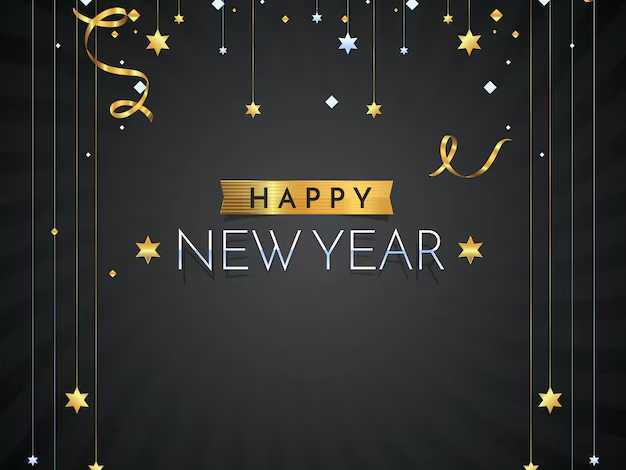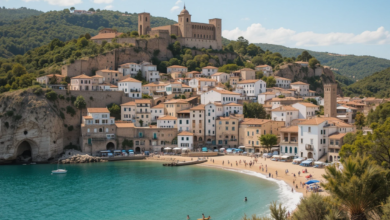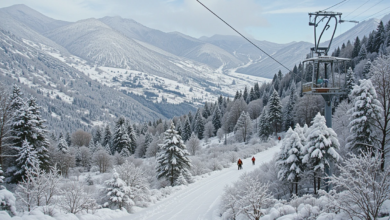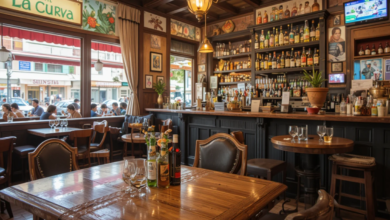New Year’s Day: A Celebration of New Beginnings

New Year’s Day is much more than just the first day of the calendar year; it is a symbol of renewal, hope, and fresh beginnings. Celebrated worldwide, January 1st serves as a moment for reflection on the past year while setting goals and aspirations for the year ahead. Whether through fireworks lighting up the sky, family gatherings, or quiet moments of introspection, New Year’s Day has a unique significance for people of all cultures and backgrounds.
This article explores the history, traditions, and modern interpretations of New Year’s Day and why it continues to hold such an enduring appeal.
The Historical Roots of New Year’s Day
The origins of New Year’s Day date back thousands of years. The first recorded celebration of a new year took place in ancient Mesopotamia around 2000 BCE. Unlike today’s January 1st date, these early celebrations were often tied to agricultural cycles or the vernal equinox, symbolizing new life and growth.
The establishment of January 1st as the start of the year came much later. In 45 BCE, Julius Caesar introduced the Julian calendar, which aligned with the solar year. January was chosen as the first month to honor Janus, the Roman god of beginnings and transitions, often depicted with two faces—one looking to the past and the other to the future.
Over time, this date was adopted in various cultures, though local customs and calendars influenced how New Year’s Day was marked. The Gregorian calendar, introduced in 1582 and widely adopted in the following centuries, solidified January 1st as the official start of the year in most parts of the world.
Global Traditions and Celebrations
New Year’s Day is celebrated differently across the globe, with traditions deeply rooted in culture, history, and local customs.
Fireworks and Festivities
In many countries, the new year begins with dazzling fireworks displays that light up the night sky. These vibrant spectacles symbolize hope, excitement, and the desire to ward off bad spirits. Cities like Sydney, Dubai, and New York are famous for their extravagant celebrations, often drawing millions of spectators.
Resolutions and Goal-Setting
The tradition of making New Year’s resolutions dates back to ancient Babylon, where people promised their gods to return borrowed items and repay debts. Today, resolutions are a way for individuals to set personal goals, whether it’s improving health, pursuing a new hobby, or fostering better relationships.
Cultural Celebrations
- Scotland: In Scotland, Hogmanay is a grand celebration that extends into New Year’s Day. The tradition of “first-footing,” where the first person to enter a home after midnight brings good luck, is a cherished custom.
- Japan: In Japan, New Year’s Day, or Shōgatsu, is marked by rituals such as cleaning homes, eating symbolic foods like mochi, and visiting shrines for prayers of prosperity.
- Spain: Spaniards eat 12 grapes at midnight, one for each stroke of the clock, to bring luck for the coming year.
- South Africa: In Cape Town, New Year’s Day is celebrated with the Kaapse Klopse, a vibrant minstrel parade full of music, dance, and colorful costumes.
A Time for Reflection
While New Year’s Eve is often about celebration and revelry, New Year’s Day provides an opportunity for quiet reflection. It’s a time to pause and evaluate the successes, challenges, and lessons of the past year. Many people spend the day journaling, meditating, or discussing their aspirations with loved ones.
The symbolic “clean slate” of January 1st can be empowering. It encourages individuals to focus on self-improvement, cultivate gratitude, and build a vision for the year ahead.
Modern Interpretations
In today’s fast-paced, interconnected world, New Year’s Day has evolved to include both traditional customs and modern innovations. Social media platforms play a significant role in how people share their celebrations, resolutions, and hopes for the new year. From countdown videos to posts highlighting personal achievements, the digital age has added a global dimension to what was once a localized celebration.
Virtual celebrations have also gained popularity, particularly after the COVID-19 pandemic. Online gatherings, live-streamed events, and video calls allow people to connect with loved ones across the globe, ensuring that the spirit of New Year’s Day remains vibrant despite physical distance.
Food and Festivities
Food plays a central role in New Year’s Day celebrations, with symbolic dishes varying from culture to culture. In the southern United States, for example, black-eyed peas, collard greens, and cornbread are eaten for good luck and prosperity. Italians enjoy cotechino e lenticchie (pork sausage and lentils), while Germans indulge in marzipan pigs and sauerkraut.
These culinary traditions often reflect hopes for abundance, health, and happiness in the coming year. Families and friends gather around the table to share meals, exchange stories, and create memories that last a lifetime.
The Universal Appeal of New Year’s Day
What makes New Year’s Day so universally significant is its ability to unite people, regardless of nationality, religion, or culture. At its core, it represents a collective desire for renewal, progress, and hope. The anticipation of new opportunities, combined with the resolve to overcome past obstacles, creates a sense of optimism that transcends borders.
This universal appeal is why New Year’s Day is one of the most widely celebrated occasions in the world. Whether marked by elaborate ceremonies or quiet moments of gratitude, the day serves as a reminder that change is always possible, and each year is a chance to start anew.
Conclusion
New Year’s Day is much more than just a date on the calendar; it is a powerful symbol of hope, renewal, and unity. Its rich history, diverse traditions, and modern interpretations make it a day that resonates with people across the globe.
As the clock strikes midnight and the world transitions into a new year, the collective energy of optimism and determination is palpable. Whether celebrated with fireworks, family meals, or personal resolutions, New Year’s Day offers a chance to reflect on the past and embrace the future with open arms.



